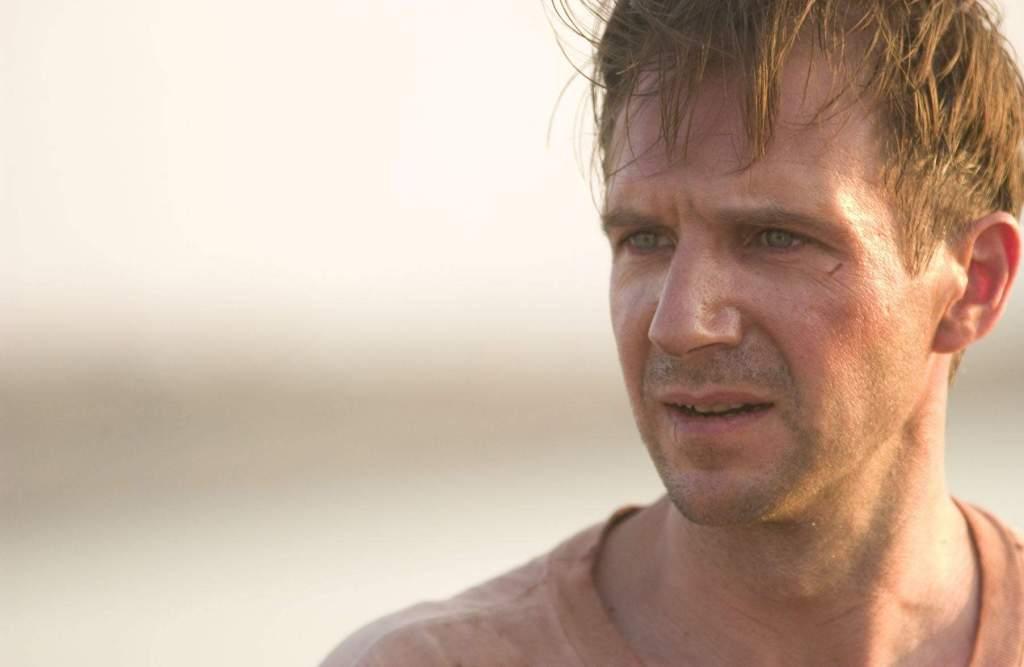
Next up on the Labor Day bill was Fernando Meirelles’ well-received The Constant Gardener, starring Ralph Fiennes and Rachel Weisz in a sort-of action-romance-thriller-edutainment about the extreme shadiness of the Pharmaceutical Trust’s clinical trials in Africa. (Or, put another way, it’s The Limey meets Hotel Rwanda meets The Bourne Supremacy meets The Girl in the Cafe.) At its best, The Constant Gardener is a compelling travelogue and a resonant Soderberghian love story, anchored by a great performance by Fiennes and solid supporting work by Weisz, Bill Nighy, and others. (By the way, nothing screams “English conspiracy” quite like the presence of Gerard McSorley, who plays a pharmaceutical tough here. Between him and Pete Postlethwaite flitting in and out, this occasionally seemed like In the Name of the Father transported to Kenya.) But, Gardener also suffers some of the defects of Meirelles’ earlier film, City of God, namely an overreliance on shaky hand-held camera work and a plot that strains credulity often enough to detract from the overall experience.
So the upshot is this: Fiennes, the titular gardener, is a kindly and reclusive British diplomat in Kenya with an ill-defined job and a young new activist wife (Weisz), whom he met-cute (well, sorta) at a lecture he gave back in England and married after a whirlwind romance. When Weisz is found murdered on a desolate, unforgiving stretch of African road beside her colleague and possible lover (Hubert Kounde), Fiennes is forced to abandon the orderly and carefully tended confines of his mental garden and embark on a quest to discover both why she was killed and how she lived. Along the way, he finds that large pharmaceutical companies, the nemeses of his slain wife, have been rigging clinical trials and, worse, hiding the fatal side effects of their drugs by erasing the existence of poverty-stricken Kenyans who were administered them (How these fatal side effects were supposed to go over once these drugs went on the market is left unexplained.) Whatsmore, he soon finds his superiors at the embassy (Danny Huston, Nighy) have been steadfastly looking the other way, and that the global reach of Big Pharma isn’t above using strongarm tactics to ensure the truth never gets out…
The Constant Gardener is expertly acted and expertly put together, and it’s deserves the high praise it’s been getting — it’s easily one of the better films of this year so far. Nevertheless, I had nagging problems with the movie. For one, while I have no doubt that Big Pharma is up to many grievous misdoings in Africa (and elsewhere) in the name of the almighty buck, and I wouldn’t be surprised in the slightest if they have unctuous corporate flaks cooking books and crossing the palms of anybody it might help them to buy off, I had trouble believing that they were this kind of shady, with a seemingly universal intelligence capability and more agents than SMERSH. (Also, while I’m sure this type of trial-tinkering probably happens, the real pharmaceutical conspiracy — as others have noted — is how companies simply ignore medical crises in the developing world and attempt to ban the use of generic drugs in devastated areas.)
Also, while I could see how Fiennes’ character might be this clueless about his wife’s life-work if he had seemed more distracted during her lifetime, as played he’d have to be willfully oblivious to miss what’s going on. (Perhaps his almost-disturbing passivity is the point — the script seems to say as much at times — but I still felt it rang false.) Add an overdose of shakicam work (don’t sit too close) and some rather pointless action sequences (the late second act car chase, the bandit attack) and The Constant Gardener falls out of the top echelon of all-time-great films. But, in an otherwise down year for movies, Gardener is an adult, intelligent thriller and a believable romance that’s well above the mean and well worth catching.

